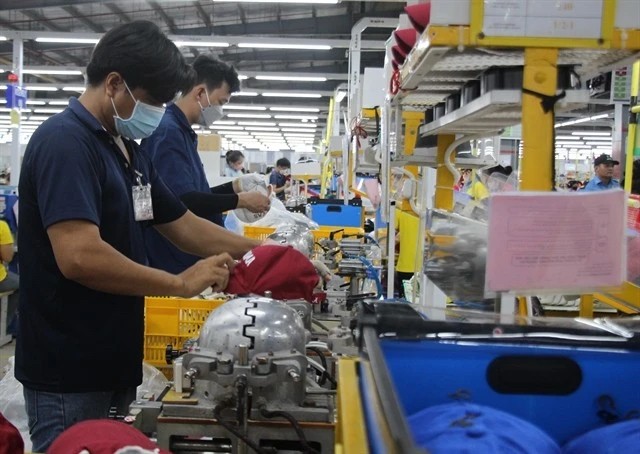PM: Three Keys to Vietnam's Halal Success
| Vietnam Seeks to Develop Halal Industry | |
| Vietnam's Halal Industry: A Lucrative Opportunity in MENA |
First, Vietnam enjoys a stable political and social environment, with an increasingly strong and large economic potential. Its investment environment is becoming more open and favorable, while the country is making efforts to build and improve transparent institutions, seamless infrastructure, and smart governance.
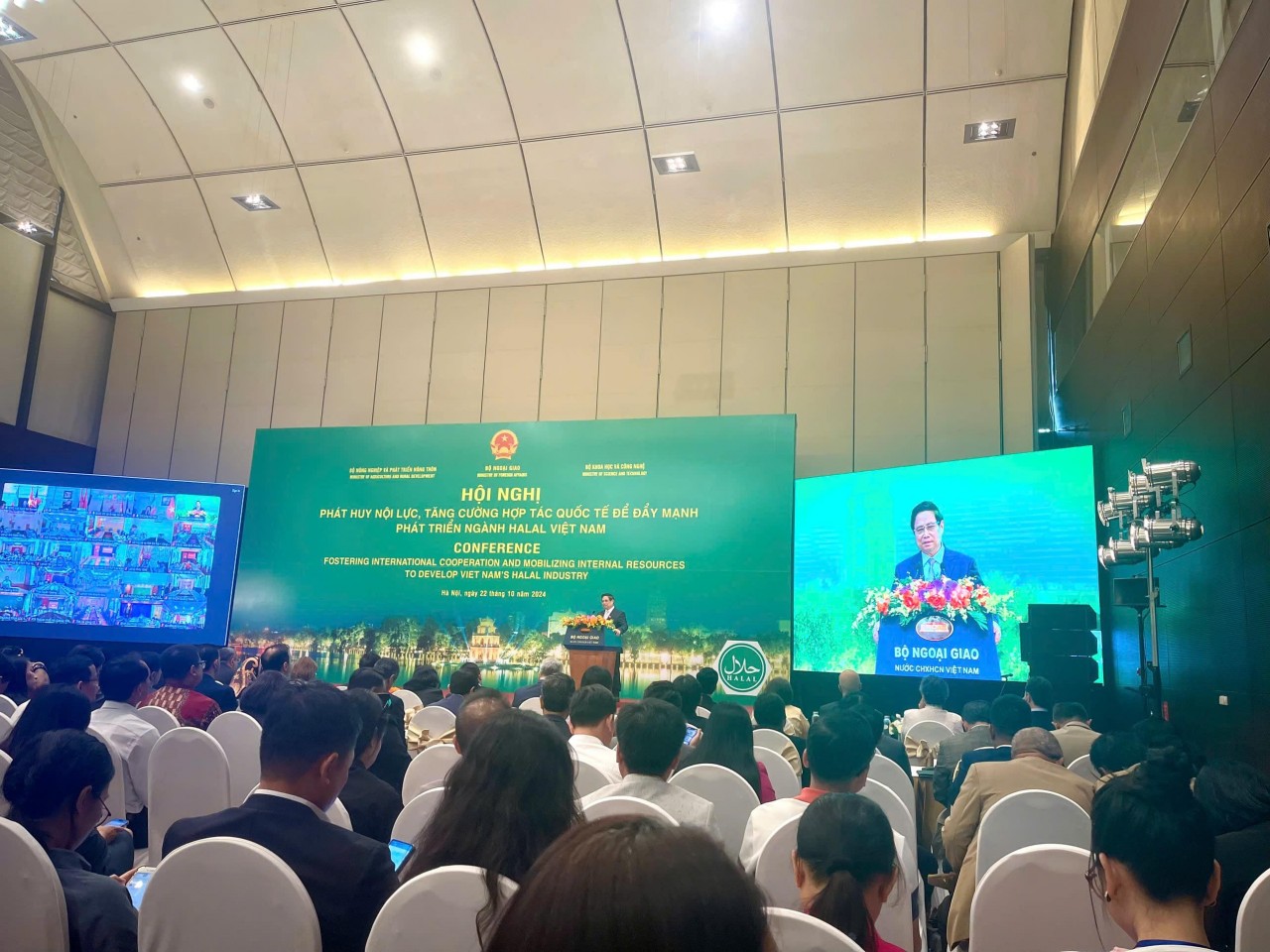 |
| The Conference on Halal Industry was held for the first time in Vietnam. (Photo: Pham Ly) |
Second, Vietnam has consistently pursued a foreign policy of independence, and self-reliance, being a good friend and a reliable partner of countries, being an active and responsible member of the international community, aiming for peace and development cooperation in the region and the world. Vietnam adheres to a defense policy of "four no's."
Up to now, Vietnam has established diplomatic relations with 194 countries, 32 of which are strategic or comprehensive partners, and participates in more than 70 key regional and international organizations. Vietnam also maintains good relations with the global Muslim community.
Third, Vietnam possesses many advantages in developing its Halal industry and deepening its participation in global Halal product and service supply chains.
Vietnam's agriculture sector makes a significant contribution to global food security, with many of its core agricultural products fully meeting Halal standards, such as seafood, pepper, cashew nuts, coffee, and rice. In 2023, Vietnam was among the top global exporters of agricultural, forestry, and fishery products, with an export value exceeding US $53 billion. In the first nine months of 2024, this figure reached nearly US $47 billion, aiming to reach about US $60 billion for the year.
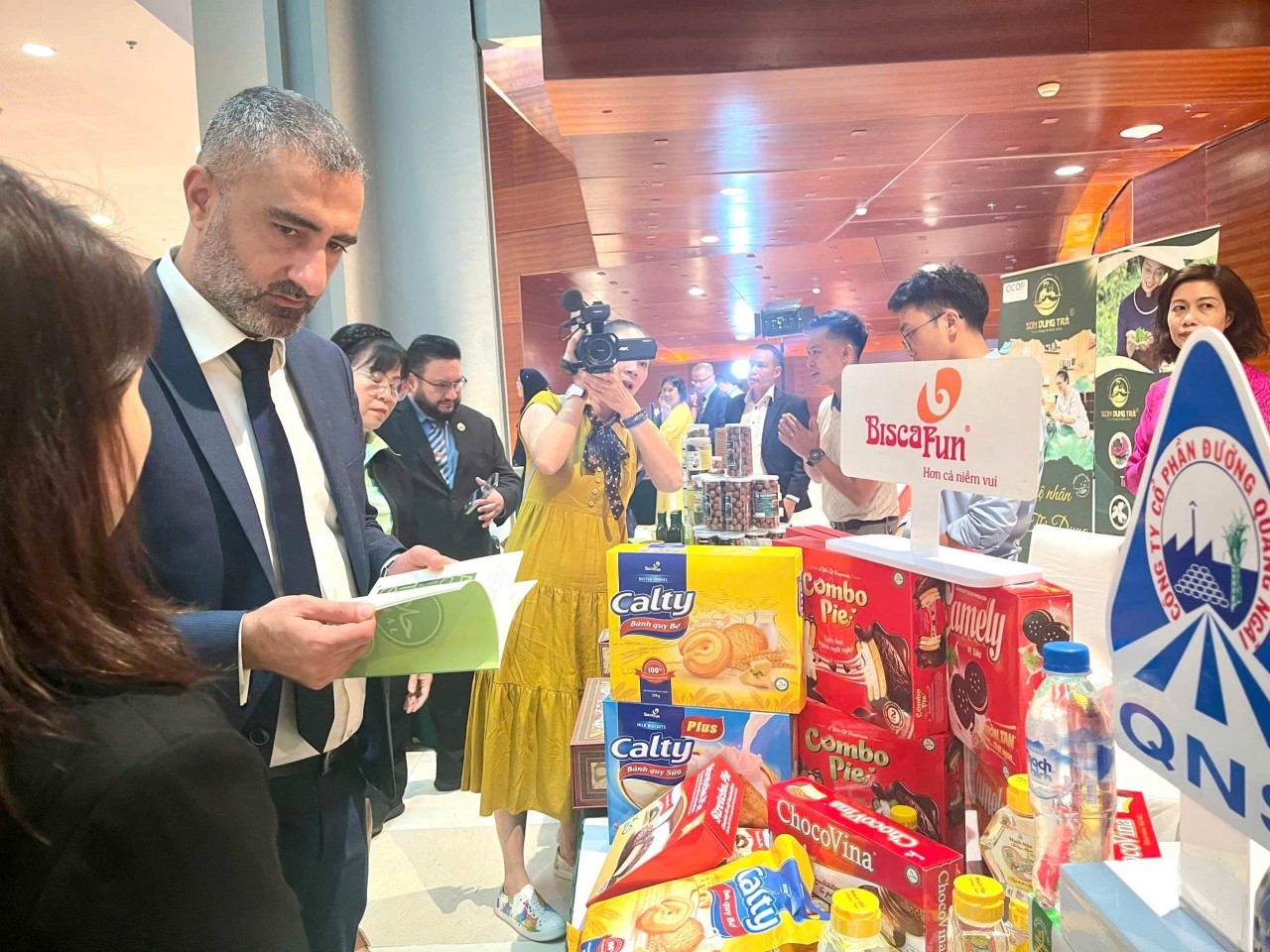 |
| International delegates visit the Vietnam exhibition booth. (Photo: Pham Ly) |
Vietnam also has considerable advantages in tourism, including Halal tourism. Its coastline spans over 3,000 kilometers and has many beautiful, diverse ecosystems and beaches that are among the most attractive in the world.
In addition, the Prime Minister emphasized three key messages from Vietnam regarding Halal industry development.
First, Vietnam places great importance on cooperation in the Halal sector and hopes to turn this cooperation into "a significant economic cooperation component, a new pillar, and a new motivation" for its relations with other countries, including the global Muslim community.
Second, Vietnam values the development of the Halal industry, seeing it as a new direction for production activities; viewing Halal as a "golden opportunity" for Vietnamese enterprises to enhance production capacity and strengthen cooperation with partners to effectively participate in the global Halal market and value chains.
Third, Vietnam is committed to developing the Halal industry based on respect for cultural values, especially human culture, and the value of peaceful coexistence, thus demonstrating its contribution and sense of responsibility towards the building of a peaceful, diverse, and harmonious world of common development.
Five areas to boost internal strength and international cooperation in Halal
To maximize internal strengths and enhance international cooperation in the Halal sector, the Prime Minister outlined five key areas of focus, including:
Enhancing cooperation in sharing information and experience, assisting Vietnam in completing the legal framework and state management related to Halal, developing a national Halal standards system, and providing technical support, capacity building, and human resource training to meet the demands of the growing Halal industry and exports of Vietnamese products and services.
Promoting negotiations and signing agreements, memoranda of understanding, and mutual recognition agreements on Halal certification, enabling Vietnamese businesses to become integral links in the global Halal food supply chain.
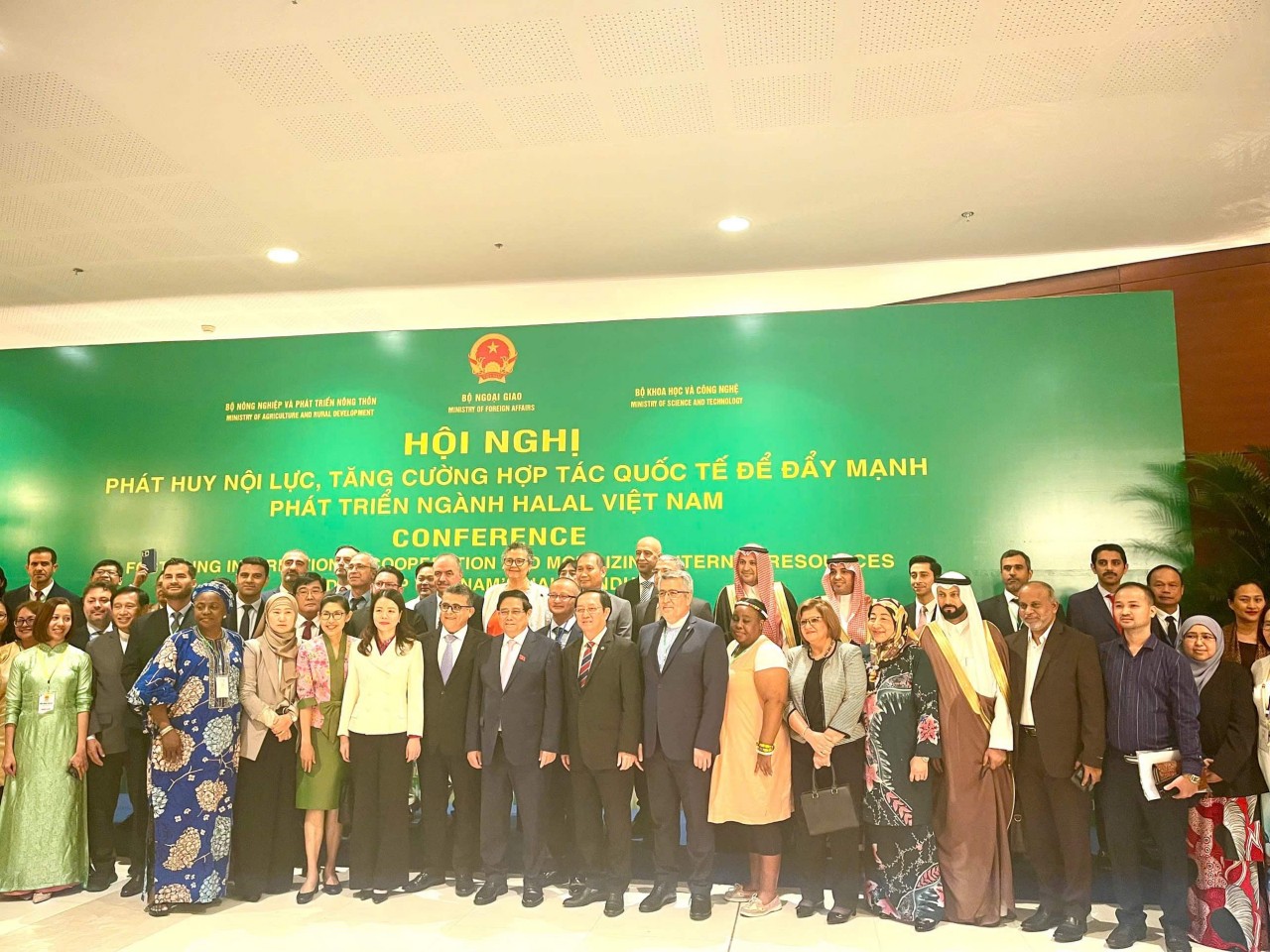 |
| Prime Minister Pham Minh Chinh takes a photo with international delegates. (Photo: Pham Ly) |
Encouraging regional and international partners to invest and do business in Vietnam in Halal-related fields, particularly agriculture, tourism, hospitality, pharmaceuticals, cosmetics, and supporting industries for Halal such as technology, production lines, and logistics.
Strengthening the promotion and marketing of Vietnamese Halal products, services, and brands, while expanding market access for Vietnam's Halal exports.
Fostering people-to-people exchanges and cultural cooperation, thereby enhancing mutual understanding between Vietcooper, foreign businesses, and communities about each other's strengths and potential for cooperation in developing the Halal industry in Vietnam.
At the conference, domestic and international delegates highly praised Vietnam's potential, strengths, and strategy in actively participating in the global Halal market. Chairman of Halal India Mohamed Jinna noted that Vietnam is facing a "bright future" as it approaches a rapidly expanding global Halal market. He emphasized that Halal certification will serve as a gateway for Vietnam to access a market that spans various industries such as food, pharmaceuticals, cosmetics, fashion, and tourism.
For his part, Secretary General of the Standards and Metrology Institute for Islamic Countries (SMIIC) Ihsan Ovut lauded Vietnam's dynamic economic development and its potential for developing the Halal tourism, food, cosmetics, and pharmaceutical sectors.
Chairman of the Gulf Cooperation Council (GCC) Accreditation Centre (GAC) Moteb Al-Mezani noted that product certification, including Halal certification, represents the highest level of trust in product quality.
He affirmed that Vietnam’s approach to Halal development aligns well with the interests and cooperative objectives of Gulf countries. The delegates expressed confidence that Vietnam's efforts to strengthen international cooperation would yield positive results, contributing to the country's socio-economic development and the global Halal industry's growth.
The delegates agreed that for Vietnam to effectively participate in the global Halal market, it is necessary to focus on several key measures, including supporting the connection between localities and businesses with global Halal partners and markets in priority sectors such as agriculture, tourism, textiles, pharmaceuticals, and cosmetics.
Additionally, it is vital to boost investment attraction, provide technical support, and enhance training and human resource development; continue improving its legal framework and policies on Halal, optimize certification processes, and promote mutual recognition of Halal certification.
Fostering cultural exchanges and people-to-people interactions will also strengthen mutual understanding between Vietnam and the global Muslim community.
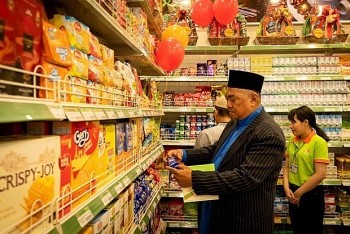 | Vietnam News Today (May 15): Halal Industry to Boost Vietnam’s Links with Muslim Countries Vietnam News Today (May 15): El Nino to return and impact Vietnam this year; Halal industry to boost Vietnam’s links with Muslim countries; Second shipment ... |
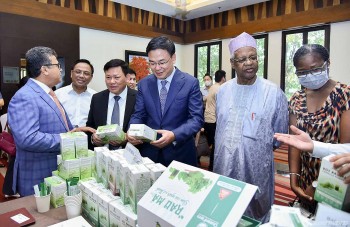 | Developing Vietnam's Halal Industry: New Direction for Economic Diplomacy The Ministry of Foreign Affairs will closely coordinate with relevant ministries, sectors and agencies to strengthen international cooperation to develop Vietnam's Halal industry for the ... |

